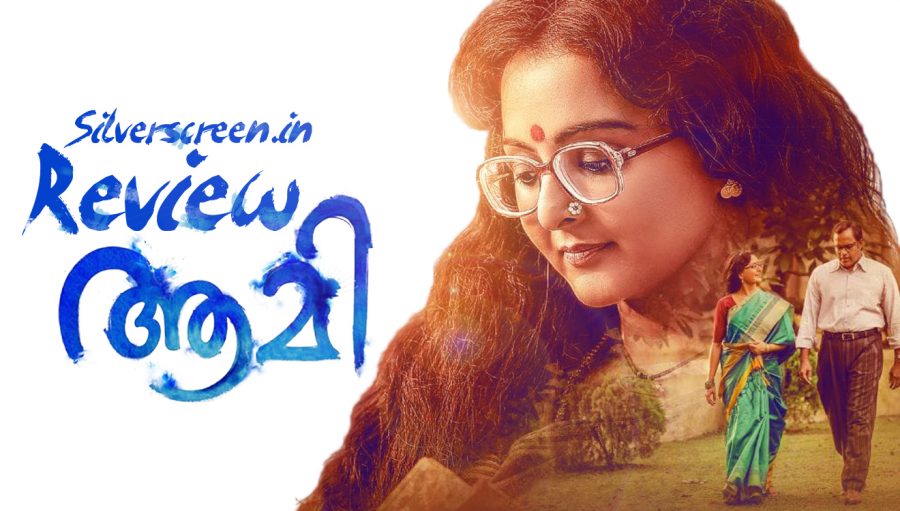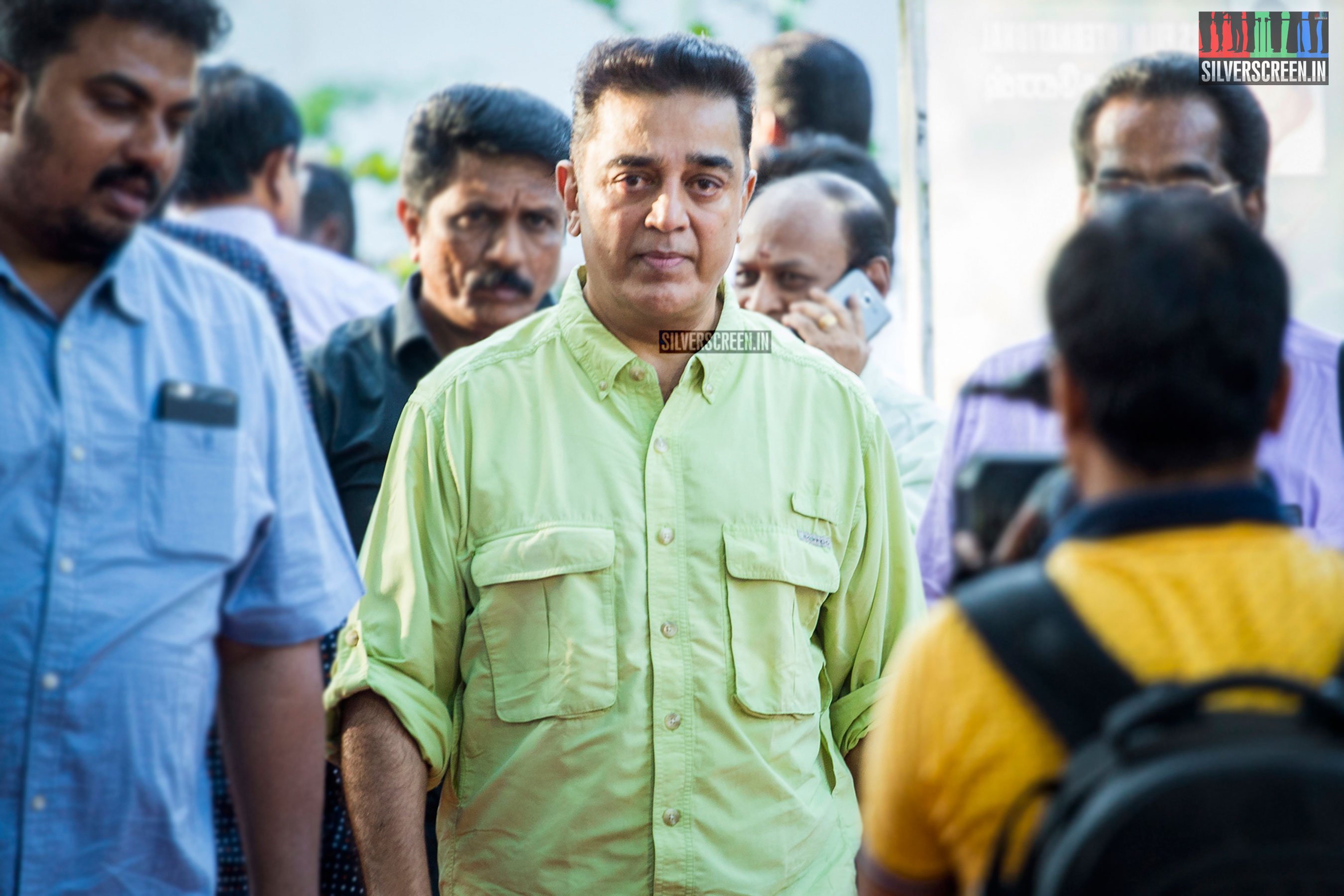In Aami, director Kamal takes up the non-viable task of compressing the magnificent and intense life of one of the most celebrated writers in the country, Kamala Surayya/Madhavikutty into a two-and-half hour film. The result is, unsurprisingly, more tedious than inspiring.
Aami suffers from the most common biopic ailments: Everything on screen – the people, spaces and things – is fully conscious of the massive fame and genius of the subject in hand. There is no real drama in the proceedings because of the very same reason. The nearest example to cite is the early scene where little Kamala is introduced to the audience. She is at Punnayoorkkulam, her maternal ancestral home which is inside a giant compound where an old Caper tree – neermathalam – stands. A close-up shot of her looking up to see the tree’s flowers, smiling wide, with the morning light of the sun falling on her face. It’s ceremonious; shot like an iconic image. The background score hints that we mark this shot for future reference because the girl and the tree share an important relationship. And this isn’t a one-off case.
Aami has the authenticity of Ramanand Sagar’s Ramayana.
The interiors where the story unfold, the clothes and get-up of the characters and the dialogues – everything has a fresh coat of paint on them. The characters are presented like relics, not real people. Their accent sounds heavily put on, and conversations, contrived. If Kamala, in her usual appearances in front of the media, was a naturally gorgeous woman who seemed to have an air of carefree abandon around her, Aami‘s protagonist, played by Manju Warrier who is usually a fantastic actor, comes covered in layers of grease paint. Warrier overdoes the valluvanadan accent. She makes ardent effort to be the beautifully complicated woman that Kamala was, but a lowly imitation is all we get.
It isn’t just the fault of the actor, but the clumsy filmmaking has contributed to the debacle. The fragmented narrative of the film is interesting, but the staging of the scenes and choice of the shots aren’t any helpful in interpreting the character or bringing her closer to the audience. For one, there is a scene where Kamala, while having breakfast on the veranda of Nalappat house with her siblings, startles everyone by addressing herself as ‘adiyan’, a word only used by the lower-caste. Her grandmother quickly gives her a crash course on castes. “We don’t use that word. Only they use it,” she points at one of their maid servants, a Dalit woman engrossed in menial work outside the house. Suddenly Kamala’s writer mother, Balamaniyamma, interferes. “Don’t stuff caste into the kids’ heads,” she says. There is a funny irony in asking one to not see caste in a place like Nalapatt where caste is spread all over like the air. Kamal shoots this scene plainly, without a directorial perspective, not daring to engage a little deeper with the political undertones of the scene. This repeats several times.
Most of all, Aami is an insipid film. There is a general lack of deeper engagement with plot and characters. This is especially true about most of the supporting characters. The portrayal of her husband Madhava Das’ (Murali Gopi) gay partner is loud and exaggerated, made to fit the popular notions about homosexuals. Same could be said about the prostitute whom Madhava Das hires to teach Kamala a lesson or two about sex. She smacks her lips, and throws sinister glares at Kamala. These characters are archetypes carelessly tossed into the narrative.
Not that Aami is an irredeemable disaster. It is director Kamal’s most sincere attempt at being sensitively poetic. Kamala’s life in the seaside house, when she was going through a terrible phase of depression, has glints of excellence. Those scenes are also remarkable for Manju’s performance. She portrays the languidness of Kamala, her hallucinations and the subsequent recovery impressively. Also, in the latter half of the film, Kamala suddenly appears more human. Her relationship with Akbar Ali, an ardent fan who is decades younger than her, has fire and some fascinating rough edges. It’s with a childlike curiosity and enthusiasm she walks into this disastrous romance, and for the first time in the film, Kamala is explored as a woman in passionate love. In real life, Kamala was proud of her hopelessly romantic heart. The film, however, is more broody than romantic.
Recommended
This happens because Aami hardly takes into account the subtext of Kamala’s writings on which the film is founded. Where did she draw her intellectual glow from? How did a nondescript girl who got married off at an age of 15 to a man who raped her on the night of the wedding, transform into a well-read and groomed genius woman who stunned the world with her sublime and supremely rebellious literature and choices in life? In one of its gravest mistakes, Aami narrows down the mysteries and complexities of Kamala to her love-lorn heart, and the maverick writer ends up only as one of those hysterical lovesick women our cinema is much familiar with. Her profound love for Krishna is portrayed akin to Balamani’s affair with the mysterious avatar of the God in Ranjith’s Nandanam. Their conversations are bland and aloof. For readers of Kamala, Krishna is a beautiful metaphor; a brilliant imagery that could represent many things at once. Aami ruins it for all.
Aami never really unlocks Kamala, although it does succeed in evoking the memories of her. Kamal condemned himself to never going beyond the surface level when he decided to chronicle her life from cradle to death; to cram everything about that enormous life and that labyrinthine mindscape into a typical commercial film that uses old-fashioned form of storytelling. If Kamala found pleasure in stunning and scandalizing the hypocritical society while never fitting into the bottles of societal norms, Aami is a film so sanitized and carefully self-censored. It tries to be poetic but what is poetry sans that courage to break the norms? Aami only ends up as a half-baked, bogus portrait of an incredibly unique woman.
***
The Aami review is a Silverscreen original article. It was not paid for or commissioned by anyone associated with the movie. Silverscreen.in and its writers do not have any commercial relationship with movies that are reviewed on the site.



